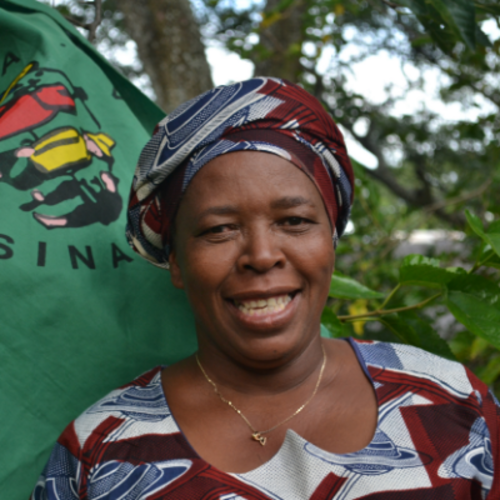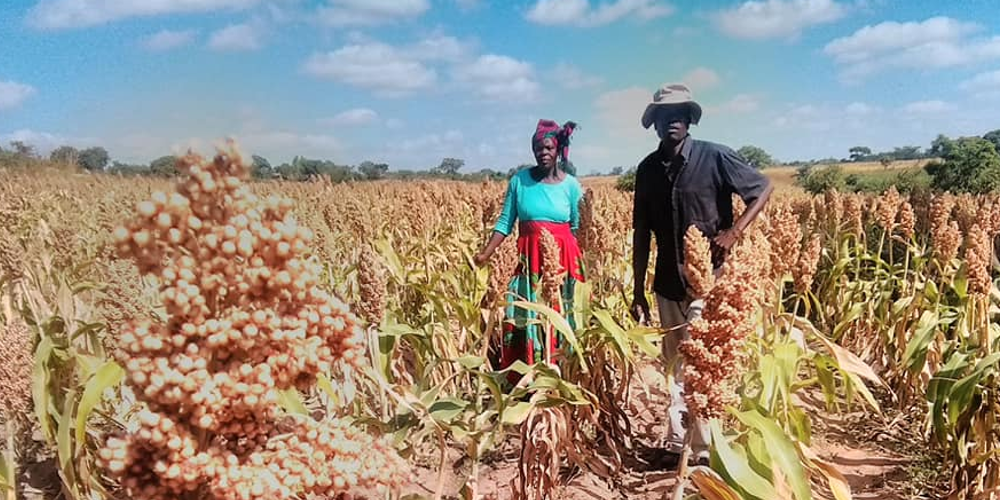On 27 July, Elizabeth Mpofu, General Coordinator of La Via Campesina, reminded everyone who attended the global exchange meeting in the framework of the UN Decade for Family Farming that the COVID 19 Crisis reveals to us the limitations of the industrial food system.
She insisted that the Decade of Family Farming, which seeks to place family farming at the centre of national public policies, must result in local communities having autonomy in the production of their own food. La Via Campesina has repeatedly pointed out that the current pandemic will help us to discuss issues such as food sovereignty, as well as the need for agroecology, healthier food and the need to produce food closer to consumer markets. The global peasant movement believes that this is only possible through family farming and peasant agriculture.
Reproduced below, is the full text of her speech;

“I am representing La Via Campesina, the global movement, which brings together more than two hundred millions of peasants, small and medium size family farmers, landless people, rural women and youth, indigenous people, migrants and agricultural workers from around the world.
We believe that the Decade of Family Farming is an historical opportunity to promote public policies supporting the rights of peasants as well as small-scale food producers and other people working in rural areas who are producing more than 70% of the food in the world.
Dear participants, we are witnessing difficult times with the pandemic. As peasants, we are experiencing many challenges inducing a very quick increase in unemployment, hunger and violence. The covid outbreak is showing us once again the fragility of the current food system based on over exploitation and privatisation of lands and seas.
The pandemic has once again highlighted the dysfunctions of the global supply chains and the urgent need for people to rely on local and agroecological food production and distribution. In many countries, open air peasants’ markets offering local, fresh and healthy food were shut down, peasants were chased by the authorities, small producers had to pay very high fines because they kept feeding the communities! Meanwhile, the supermarkets and big corporations offering processed food in closed areas were allowed to function by putting all the population at risk of contamination. These policies are not supportive for family farming at all!
Many people are vulnerable to COVID-19 precisely because of the poor diets and related health conditions (such as diabetes, high blood pressure, overweight, respiratory problems, etc.). The industrial food system is aggravating this situation.
The first line of defense of our bodies against pathogens, depends on the food we eat. We are what we eat. It, therefore, implies that the wider food diversity, the stronger and healthier we become.
Now is the time to reinforce agroecological food production and consumption and make it available to all.
The Covid Crisis has also shed light on the many contradictions and problems that agricultural workers – in particular migrant workers – are facing all around the world.
We, therefore, call on the governments to urgently implement public policies to protect peasant and agroecological production, including local markets, to support and protect farm and rural workers.
We, as peasants and small family farmers need land, seeds, water, and all the conditions to feed the populations safely. Such rights are what peasants urgently need during this COVID-19 crisis and beyond.
It is fundamental to link the UN Declaration of the Rights of Peasants and other People working in the Rural Areas – an instrument of recognition and protection of the rights of rural people – and the UNDFF – a framework that promotes public policies in support of family farmers. This link enhances the efforts for achieving the 2030 Agenda and the Sustainable Development Goals, bringing a direct contribution to the sustainable food production and the eradication of food insecurity and malnutrition.

